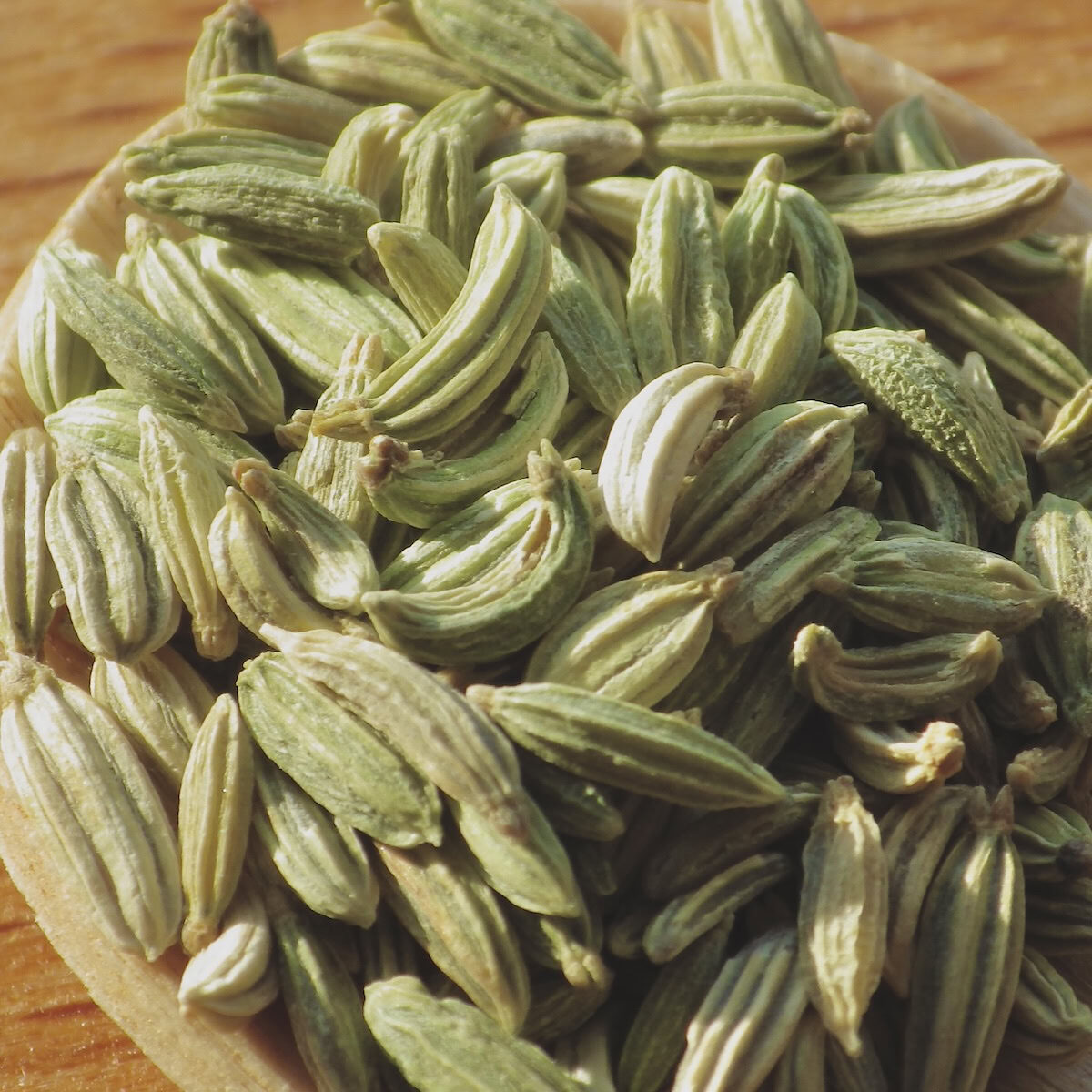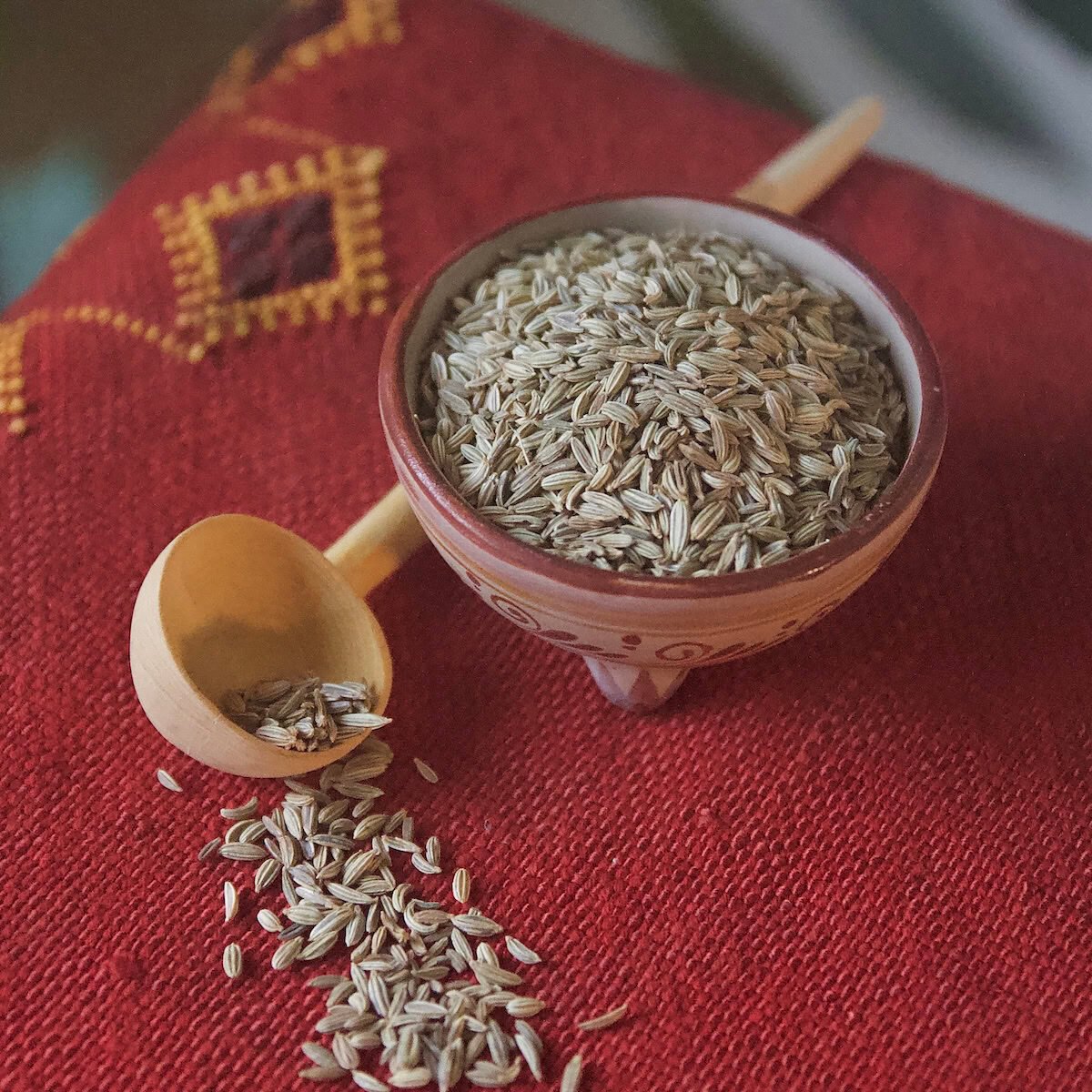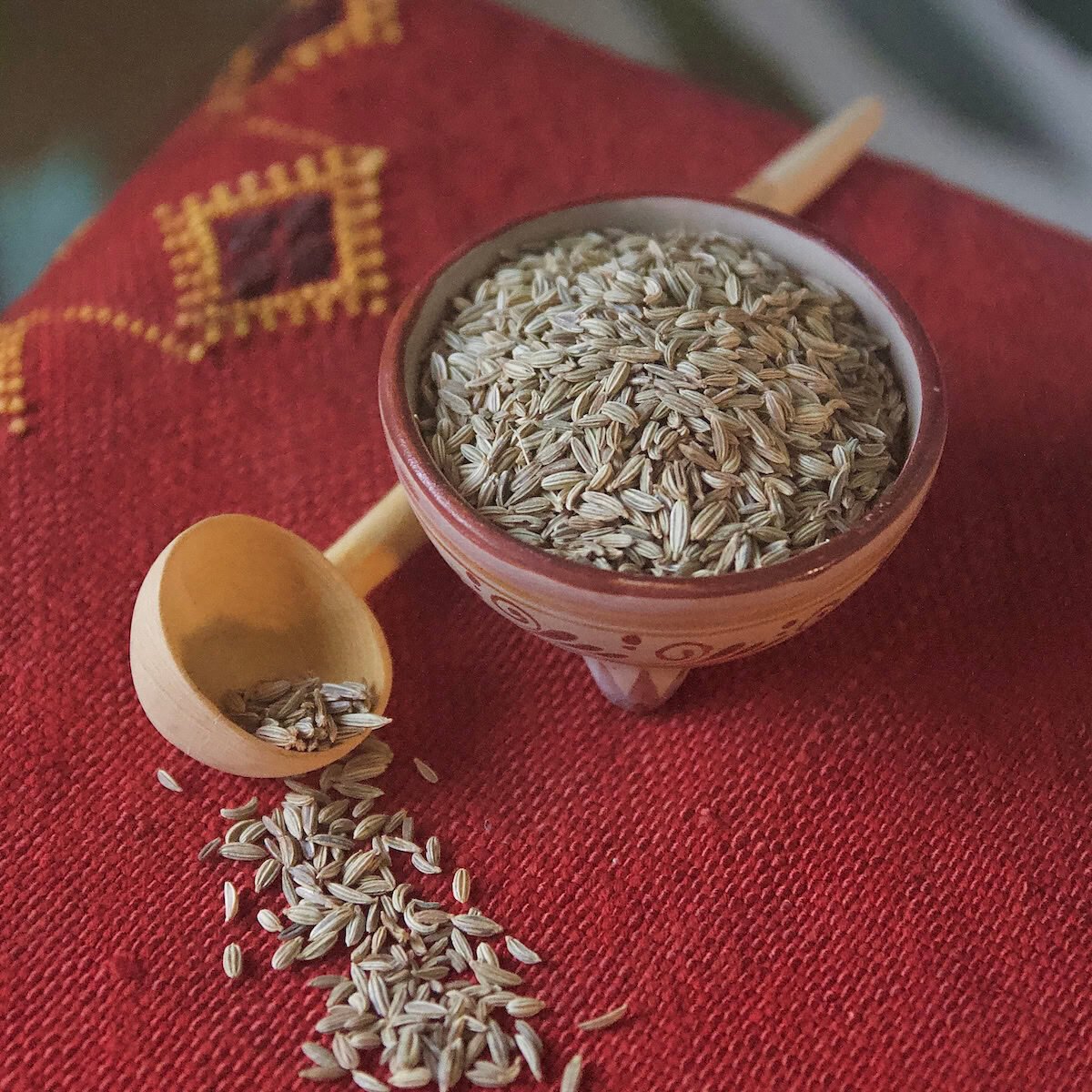Fennel Seed
Fennel seed is the spice produced from the tiny fruit of the fennel plant (Foeniculum vulgare), a perennial herb in the parsley family.

REGION OF ORIGIN
Fennel was born on the shores of the Mediterranean, spanning Southern Europe, North Africa, and the Middle East. This region's mild winters and dry summers allowed fennel's wild ancestors to flourish.
PART & COLOR
HARVEST
Fennel is a fast-growing perennial that is typically sown in the spring. The plant can bolt quickly in hot weather, causing it to focus on flowering and fruiting, so the summer is ideal for fennel "seed" and pollen harvest. The fruits are harvested from the flower heads once they turn a rich brown color in the late summer to early autumn, but before they split open. The entire flower head is cut and hung upside down to dry, and the fruits are threshed or caught as they dry and fall off.

FLAVOR & AROMA PROFILE
The dominant note of fennel seed is akin to anise or licorice, but it’s softer, with hints of citrus, pine, and mint. This spice is more pungent than the fresh fronds due its higher concentration of essential oils. The aroma intensifies when lightly toasted, adding new character to its profile.
On the tongue, the initial taste is primarily sweet, but as more flavors unfold, a pervasive warmth emerges, accompanied by a touch of zest and a gentle peppery bite. The lingering aftertaste leaves a pleasantly warm and slightly bitter impression on the palate. Overall, fennel seeds have a complex, calming profile. To maximize their flavor, lightly toast them in a dry skillet until the fragrance intensifies, then grind them with a mortar and pestle or electric spice grinder.
CULINARY USES
The licorice notes of fennel seeds go famously well with sweet baked goods like cookies and cakes, but they can do so much more. In Italian cuisine, they're crucial to sausages, meatballs, and marinades. In Eastern Europe, they're added to a variety of breads and cheeses. In India, they impart their sweet warmth to curries, vegetable dishes, and lentil stews.
They also shine in pickling as they complement the tangy flavors of vinegar and vegetables—simply add them whole to pickling brines for cucumbers, beets, carrots, and the like. Fennel seeds are a great infuser. They do wonders for syrup, honey, and ice cream, and you can simply steep them in hot water to make a soothing beverage that freshens breath and aids digestion.



